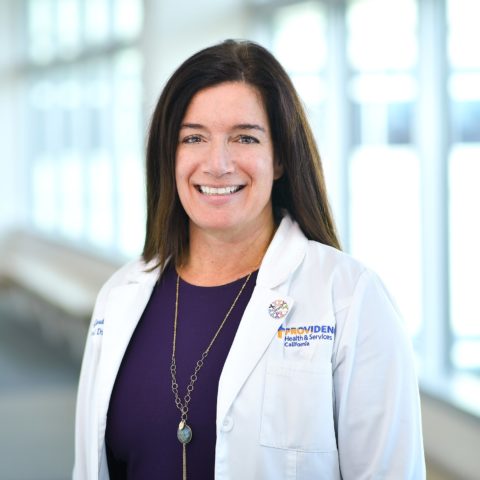Cancer Genetics and Genetic Counseling
Approximately 10% of all cancers are hereditary, meaning that specific mutations (changes) in genes are passed on between relatives. If you are born with (inherit) an abnormal gene(s) you are at a higher risk for developing cancer during your lifetime. There is also the potential for passing on these gene changes to your offspring. Genetic counseling (and testing when indicated) can help you understand this risk.
Our goal is to empower you and your family to make personalized, well-informed healthcare decisions based on your individualized genetic risk assessment. Your decisions can lead to better cancer treatments, earlier cancer detection and prevention. Knowing your risk can change your future.

Who May Benefit from Genetic Counseling
Typically, we recommend genetic counseling if:
- You or any of your family members have been diagnosed with breast, colon, prostate or uterine cancer before age 50.
- You or any of your family members have developed a rare type of cancer, such as ovarian, male breast, pancreatic, endocrine, or a sarcoma.
- You or any of your family members had highly aggressive or metastatic prostate cancer.
- You or any of your family members had numerous colon polyps.
- You or any of your family members had more than one type of cancer or bilateral cancers (ex. breast and colon cancer, or breast cancer in both breasts).
- You have multiple family members that have been diagnosed with cancer of any type.
- If you have Ashkenazi (Eastern European) Jewish ancestry.

What to Expect at Your Visit
- Detailed medical and family history and creation of a medical family tree
- Cancer or disease risk assessment based on history, physical exam, and evidence-based risk models
- Genetic testing discussion
- Cancer screening and prevention recommendations
Insurance Coverage:
Health insurance typically covers consultation appointments and is independent of any genetic testing costs or authorizations. Most Insurance companies also cover the cost of genetic testing for people considered at high risk for disease. If you are uninsured, other means for assistance may be available.
Helpful Links and Resources
General
- National Cancer Institute, Genetic Testing for Hereditary Cancer Syndromes
- American Cancer Society, Family Cancer Syndromes

